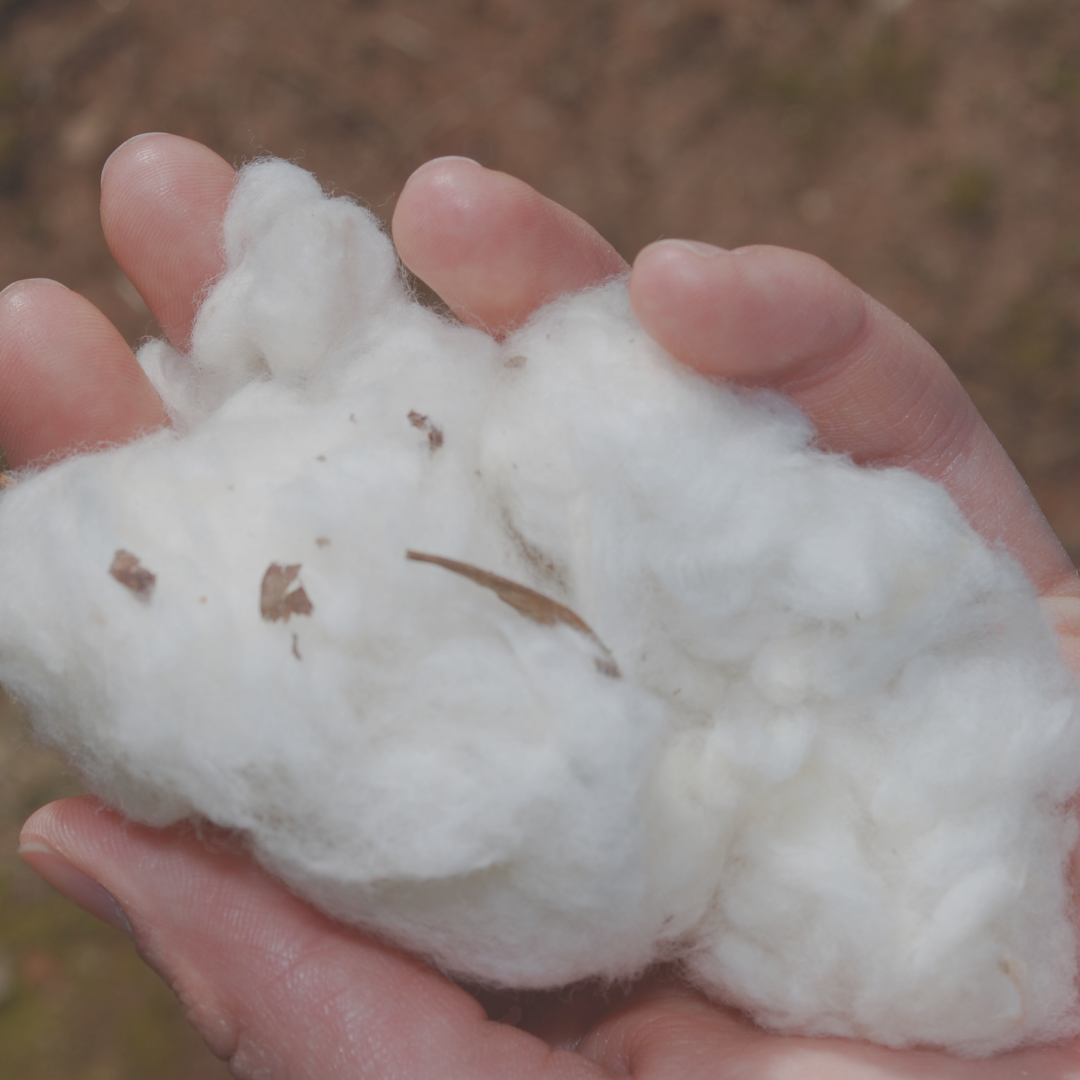Your Cart is Empty
Free shipping on all domestic orders over $150
Free shipping on all domestic orders over $150

6 Things to know about cotton yarn
March 11, 2019 4 min read 7 Comments
Here comes spring, and with it the plant-based fibers so many of us love to hate. Sunday in the shop, Bonnie, a ten-year old new knitter, was practicing her knitting. Her stitches were perfect, but she was struggling against her yarn. It was dishcloth cotton, which is no treat to use. She soldiered on valiantly, but you could tell it wasn't much fun. Because my goal is to create a hoard of dedicated new knitters -- I couldn't possibly sit by and watch this lovely child get frustrated and lose interest in knitting simply because she was fighting with her materials. I swapped her dishcloth cotton out for a soft, more loosely spun cotton, and pretty soon she looked up and proclaimed it to be much easier now! Yeah Bonnie!
That's because there's cotton, and then there's cotton. I wrote a post about cotton several years ago that I've re-posted here to explain what I mean.
Cotton yarn is different from wool, that's for sure, and cotton sometimes gets a bad rap. The cotton yarn you'll find at the big box store feels like string and you wouldn't want to wear it against your skin, let alone spend hours knitting with it. But not all cotton is like that. Good cotton feel silky smooth and is a pleasure to knit. Here are some facts about cotton that will help you understand what you're getting when you buy Yarn Store cotton yarn, why it's more expensive, and what you can do to have the best experience knitting with cotton yarns.
- What differentiates good quality cotton from poor quality cotton?
Like wool, one of the key ways cotton is judged is its staple length, or the length of a strand of the unspun fiber. Good quality cotton such as Sea Island cotton, Pima Cotton, and Egyptian Cotton have staples that are at least 28 mm long and can reach up to 50 mm in length. These are your finest quality cottons
- What does fiber length matter in knitting yarn?
Short staples have lots of ends exposed, and the yarn must be twisted very tightly to hold all those little pieces in place. The tight twist makes the yarn feel hard, and the ends sticking out make it feel scratchy and give the yarn a "linty" worn appearance. Yarns spun from longer fibers have far fewer ends exposed and can be spun more gently giving those yarns a soft pleasant hand. Garments knit from quality cotton yarns last longer and the fabric has better stitch definition than cheaper cotton yarns.
- Why do some cotton yarns look shiny and some look matte?
While there are inherent difference in luster among varieties of cotton, the most notable difference between cotton yarns is whether or not it's mercerized. Mercerized cotton yarns have been treated first with a strong base and then neutralized with a strong acid. This process strengthens the yarn, makes it more lustrous, allows it to take dye more deeply, and minimizes shrinking. Unmercerized yarns have a softer hand, appear more matte, and require a smidge more care when laundering. Which you choose is personal preference. One is not better than the other, they're just different.
- How does fabric knit in cotton yarn behave?
While wool yarn is bouncy, cotton yarn is not. It doesn't spring back to shape when you stretch it out, but rather stays where you pulled it. That can be a real plus for certain kinds of fabrics and styles of garments. For instance, cotton hand-knit fabrics tend to curl less at the edges, which means you can cast on and go right into stockinette without having to work ribbing or garter stitch border to keep the fabric from rolling up. This characteristic is perfectly suited lighter weight summer garments that you might naturally want to feel less structured.
- What different types of cotton yarns are there?
Cotton yarns are predominantly spun and plied into a standard round yarn for knitting. They are sometimes mixed with other fibers to enhance certain characteristics or create a particular look or add durability. Modern mill techniques give manufacturers lots of new ways to spin cotton fibers in to all sorts of different yarns. Some cotton yarn is flat and tape-like so that you can work it up on a larger needle or hook but still have a light fabric. Many cotton yarns today have a chainette construction which gives them more of the kind of elasticity you expect from wool yarns. They are a pleasure to knit and make a beautiful garment with both drape and memory.
I hope this helps you understand cotton yarns a little better. There are new cotton yarns on the market all the time, and they are absolutely lovely to knit or crochet, and wonderful to wear against your skin. Come by the shop and see how the yarns look knit up, or take a skein home and play with it yourself. If you have a question, please ask - we're here to help you create something beautiful.
I look forward to seeing you in the shop and around the table. You are always welcome here.
7 Responses
Wanda
February 08, 2021
I’m a beginner to knitting. Why is my yarn so tight on needle? I’ve tried doing it looser but haven’t had much luck yet.
Nancy
March 04, 2020
Thank you Ellen,
This information was very informative, and there was more information that I didn’t even know I wanted to know! : )
I’m knitting for a new grandson-to-be, and I want only the best, but need a summer-weight yarn, so thank you for your helpful info.
Happy Knitting ; )
Ann Boyer
March 17, 2019
Excellent info. Very helpful. Thanks so much, Ellen. Even if I never buy or use cotton for knitting, the basic info will be very useful.
Susan
March 12, 2019
Thanks Ellen. Useful information as always!
Joyce D Falkenhan
March 12, 2019
What a wonderful explanation Ellen! Thank you so much for clarifying an often misknitted (misconstrued) yarn about cotton yarn!
Joyce
Chris Guy
March 12, 2019
Thanks Ellen for the informative post on cotton. I learned the hard way about big box store yarns…use your LYS…they are there to help. I’m so glad I do! Hugs!!
Leave a comment
Subscribe
Sign up to get the latest on sales, new releases and more …


mercerized cotton
August 03, 2023
This is a light weight 5.5oz beautiful and bright cotton jersey made with a mercerized cotton yarn. Mercerized cotton is a very nice lustrous cotton yarn. mercerized cotton